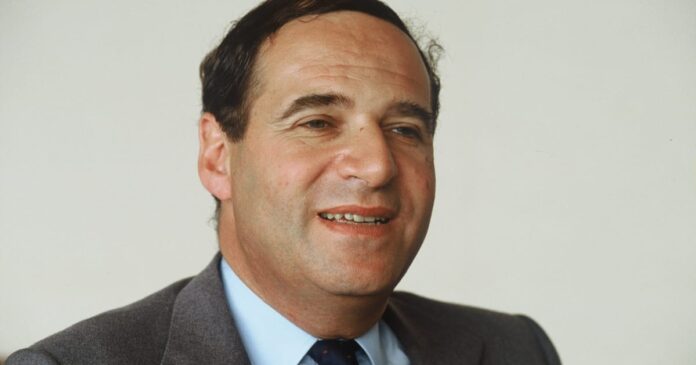Leon Brittan, who was a European commissioner for ten years and a number one determine within the improvement of the World Commerce Organisation, has died on the age of 75. He had been affected by most cancers.
When Jacques Delors was president of the European Fee, Brittan was the one commissioner who got here near rivalling his affect. After Delors had been succeeded by Jacques Santer, Brittan was the dominant mental power within the school of commissioners.
Jean-Claude Juncker, the present president of the European Fee, led the tributes to somebody he described as “a real European”, who had “demonstrated his whole mastery of advanced points and was a powerful advocate for the one market”.
Brittan’s appointment as a European commissioner got here after a profession in British authorities that was distinguished, although marred by a succession of controversies.
Elected to the nationwide parliament in 1974, Brittan was swiftly promoted by Margaret Thatcher, who assumed management of the Conservative Get together in 1975 and have become prime minister in 1979. Brittan was appointed to the cupboard in January 1981 as chief secretary to the treasury. He performed an essential position aiding the then finance minister Geoffrey Howe in imposing budgetary self-discipline. He was promoted to residence secretary (inside minister) in 1983, however was dogged by presentational difficulties, notably over policing and countering Northern Eire terrorism.
Demoted to the place of trade minister in 1985, he retained a spot within the cupboard till his ministerial profession was abruptly ended by a bitter battle between Thatcher and her rival Michael Heseltine. Heseltine challenged Thatcher over the sale of Westland, a helicopter firm, searching for to dam its sale to Sikorski, an American firm, in favour of a European consortium. Brittan was obliged to resign when it emerged that his workplace had leaked info in opposition to Heseltine. Observers on the time thought that Brittan was sacrificed to avoid wasting Thatcher.
Brittan’s nomination to the European Fee three years later got here as some type of compensation for having taken the warmth for Thatcher, although he was initially reluctant to relinquish his parliamentary seat. Mockingly, in view of how he had been solid in an anti-European position by Heseltine throughout the Westland affair, he proved a doughty champion of European pursuits. The youthful son of Lithuanian Jewish immigrants, and born within the first month of the Second World Warfare, he was emotionally in addition to intellectually European in his perspective.
It was the mind that dominated in his years as European commissioner for competitors in 1989-93, when the powerful line that he took on state support instances introduced him into frequent battle with Delors, a French socialist. Charles Grant, now head of the Centre for European Reform, a think-tank in London, witnessed the contests between Delors and Brittan as a correspondent for The Economist in Brussels. He mentioned that Brittan had, following within the footsteps of his predecessor Peter Sutherland, established and made everlasting European competitors coverage.
From 1993 till he left Brussels in 1999 on the finish of the Santer Fee, Brittan was European commissioner for commerce. He acquired extra duties for exterior relations (with some elements of the world) from 1995. It was an important interval within the improvement of the governance of world commerce. The Basic Settlement on Tariffs and Commerce was revised in 1993, resulting in the institution of the World Commerce Organisation from the start of 1995. Brittan was a high-profile protagonist in among the main commerce disputes on the time, notably with the US over bananas and hormone-treated beef. However he additionally sought to advance bilateral commerce relations with the US, proposing an early type of transatlantic partnership settlement.
Whereas his political profession within the UK was constrained by a debating method that was ill-suited to the tv period, his lawyerly, technocratic manner was well-suited to the work of a commissioner in Brussels, the place political grandstanding – not less than in these days – was all the time depending on the first process of mastering the temporary. On this respect, his capability for arduous work put him far forward of a possible mental rival within the Santer Fee, the intelligent however lazy Martin Bangemann.
It helped too that Brittan was completed in recognizing expertise and recruiting expertise to his personal workplace. Those that handed by the Brittan cupboard included Catherine Day, who’s now secretary-general of the Fee, Jonathan Faull, the director-general for monetary stability, monetary companies and capital markets union, Robert Madelin, the director-general for communications networks, content material and know-how, Joost Korte, deputy director-general for agriculture and rural improvement, Ivan Rogers, the UK’s everlasting consultant to the EU, Simon Fraser, now essentially the most senior civil servant on the UK’s international ministry, and Nick Clegg, the UK’s deputy prime minister.














